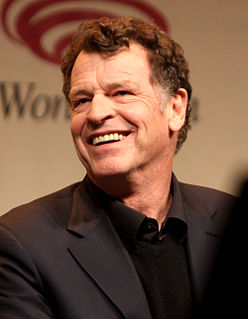A Quote by Randal Marlin
Aristotle writes that persuasion is based on three things: the ethos, or personal character of the speaker; the pathos, or getting the audience into the right kind of emotional receptivity; and the logos, or the argument itself, carried out by abbreviated syllogisms, or something like deductive syllogisms, and by the use of example.
Related Quotes
In Aristotelian terms, the good leader must have ethos, pathos and logos. The ethos is his moral character, the source of his ability to persuade. The pathos is his ability to touch feelings to move people emotionally. The logos is his ability to give solid reasons for an action, to move people intellectually.
If it were true that conservatives were racist, sexist, homophobic, fascist, stupid, inflexible, angry, and self-righteous, shouldn't their arguments be easy to deconstruct? Someone who is making a point out of anger, ideology, inflexibility, or resentment would presumably construct a flimsy argument. So why can't the argument itself be dismembered rather than the speaker's personal style or hidden motives? Why the evasions?
I mostly used the studio devices, because I knew what they had. Generally I find I'm happy to use whatever's around. If there's nothing there I'll make something. For example, one of the things I tried doing was getting a tiny loudspeaker and feeding the instruments off the tape through this tiny speaker and then through this huge long plastic tube - about 50 feet long - that they used to clean out the swimming pool in the place where I was staying. You get this really hollow, cavernous, weird sound, a very nice sound. We didn't use it finally, but nonetheless we well could have.
The ethos of 50 years ago was that there was one kind of English that was right and everything else was wrong; one kind of access that was right and everything else was inferior. Then nobody touched language for two generations. When it gradually came back in, we didn't want to go back to what we did in the 1950s. There's a new kind of ethos now.
I remember when I read Walter, for example, six years ago now, I said, "This is the role for me." I said that to my family. There was something there that I knew was absolutely right, and that was just based on the character. That's when gut instinct comes into play. I know there are certain things I won't do.
You and I must realize that the English language is filled with words that, in addition to their literal meanings, convey distinct emotional intensity. For example, if you develop a habit of saying you 'hate' things - you 'hate' your hair; you 'hate' your job; you 'hate' having to do something - do you think this raises the intensity of your negative emotional states more than if you use a phrase like 'I prefer something else'?
































